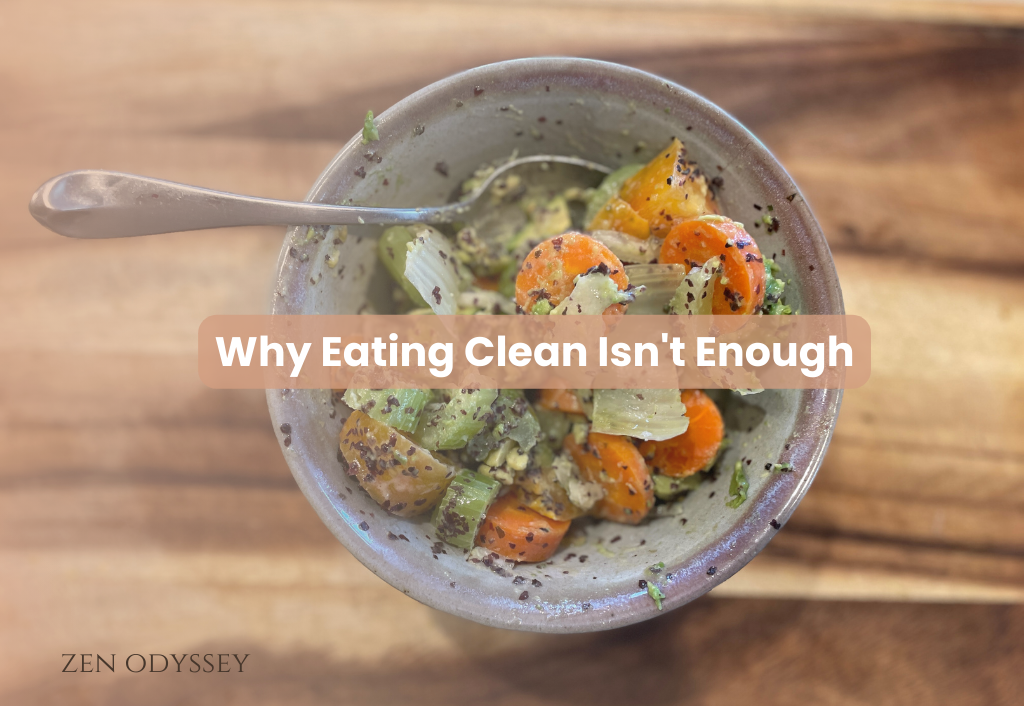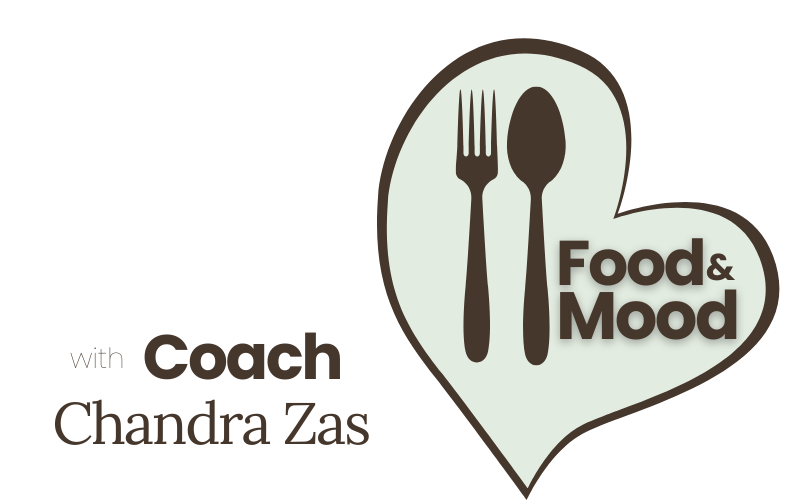
Why Eating Clean Isn’t Enough

Even though you’re eating super clean, you’re still struggling with stubborn symptoms?
What?
Frustrating… I know. Ive been there…
Often, I see a pattern where people, including myself, are eating super clean but still struggle with symptoms like bloating, brain fog, and eczema. Even when we avoid processed seed oils, sugars, and alcohol, the issue persists. Sometimes, a very clean diet can be incredibly beneficial, but without a happy, relaxed nervous system, most of that food is not absorbed, our body does not drop into “heal” mode and our symptoms remain in a flare state.
When our emotional body is in a state of stress, depression, or anxiety, our physiological body signals that it is not safe or time to heal. This causes our nervous system to respond by diverting blood away from our digestive tract, lowering our appetite, and reducing our digestive function. This is different from emotional eating.
The Importance of Rest and Digest
Rest and digest, or as I like to call it, heal and nourish, is crucial for our body to perform its natural functions of healing and maintaining balance. If we’re stressed, anxious, or emotionally overwhelmed, our body doesn’t get the signal that it’s safe to heal and repair. This is why even with a super clean diet, without addressing the emotional component, our symptoms persist.
Emotional Work and Energetic State
To truly benefit from a clean diet, it’s essential to address the emotional and energetic state. This involves managing stress, anxiety, and depression, which can disrupt our digestive system. By doing the emotional work, we can improve our body’s ability to digest, absorb nutrients, and heal.
In my coaching program, I emphasize mood management first. This is because an unhealthy emotional relationship with food can lead to emotional eating, and without managing our stress or emotional state, dietary changes have limited impact. Two crucial tools I teach are brain management and dealing with uncomfortable emotions at the root cause. These simple yet impactful tools help regulate our nervous system and emotional state, allowing our body to relax, digest, and heal properly.
Practical Steps to Manage Emotional State
- Brain Management: Learn to talk back to your brain and notice your thoughts. This helps in regulating your emotional responses and reduces stress.
- Processing Emotions: Understand how to manage and process uncomfortable emotions without resisting them.
By learning these simple and impactful tools, you can avoid spiraling into chronic stress or anxiety, creating a more fluid and balanced emotional state. This, in turn, allows your body to relax and heal effectively.
If you’re ready to take control of your emotional and physical health, sign up for a cravings assessment call with me. Let’s work together to bring your body and mind into balance and achieve lasting health improvements.
I promise you it is possible and well worth it.
In clean diets we place our trust,
Yet symptoms linger, causing fuss.
Yet symptoms linger, causing fuss.
Bloating, fog, and eczema stay,
Though processed sugars and oils are kept at bay.
The mind’s unrest, a hidden plight,
Turns off the body’s healing light.
Stress and sorrow block the way,
For food to nourish and heal each day.
So seek the calm, let worries cease,
In emotional work, find your peace.
For only when the mind’s at rest,
Can the body heal and feel its best.
